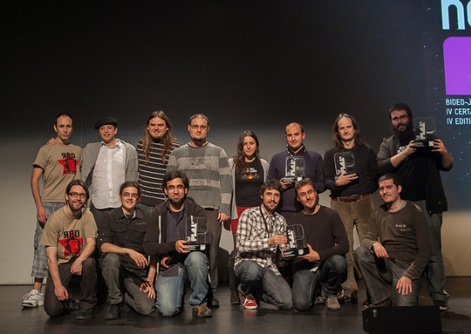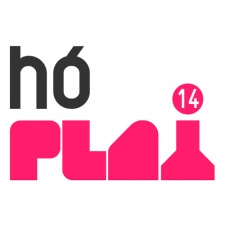Many in Spain look back with a sense of nostalgia at what became known as the 'Golden Era of Spanish Software', a time in the 1980s and early 1990s when videogame productions 'made in Spain' could brush shoulders with those developed in any other European country.
But what is often overlooked is that many of these 8-bit productions were developed in the Basque Country. Games like Hundra and companies like Zeus Software did their part during this golden era.
Unfortunately, game development in the Basque Country had become conspicuous by its absence by the end of the 90s. The professionals that had contributed to the industry had little option but to emigrate to places with more solid prospects, a situation that did not begin to change until the mid-2000s.
New beginnings
At about this time, the emergence of new development platforms, principally mobile devices, and other factors gave rise to numerous videogame development companies, as was the case in other parts of the world. Many were inspired to create their own videogame studios by the new global distribution channels that arose and the elimination of the significant barriers to project development that had existed until then.
The past ten years have seen many videogame developers emerge in the Basque Country.
The past ten years have seen many videogame developers emerge in the Basque Country, and they continue to emerge, in ever-greater numbers: mostly indie developers, keen to try new and original things, with low budgets, limited equipment, but a lot of passion and enthusiasm.
As has also been the case in many other parts of the world, stakeholders have tried to manage these developments in a rational way. Related industries and some sections of local government, cognisant of the potential of the creative industries in general and the potential of videogames in particular, have put their best efforts into giving the sector a boost.
A catalyst
In the context of this revival, it is easy to see the special significance of the hóPLAY International Independent Videogame Competition, which was originally conceived in 2009, and is organised by AlhóndigaBilbao, the art, culture and recreation centre established in one of the city’s most emblematic buildings.
The first edition of hóPLAY took place in 2010 and managed to bring together the hopes and ambitions of a local scene that had been very atomised up to that moment; hóPLAY has since become the benchmark for multiple burgeoning companies looking to publicise their profiles and attain international visibility, which had represented one of the greatest obstacles, before the creation of the festival.

It was at hóPLAY 2010 that the interactive Kinect system was launched for the first time in Spain and for the third in Europe, putting Bilbao on the international gaming map for a number of days. The origins of BasqueGame, the professional association for videogame companies in the Basque Country, are also rooted in this first edition: it has since become the local sector’s leading professional association.
During subsequent editions, hóPLAY hosted the launch of vadejuegos.com, a videogame specialist platform and partnered with another gaming festival, called Fun&Serious.

After 5 years of annual events, hóPLAY has become the benchmark event in Spain for the independent gaming sector. Its Official Competition has seen more than €150,000 go to indie developers in prizes, and has received more than 350 videogames from the 5 continents.
The festival has attracted more than 34,000 visitors to date. There are already more than 600 people registered for 2014's organised workshops and courses.

Whilst hóPLAY has evidently played a decisive role in boosting the local videogame development sector, there are other agents which have also contributed to the revival, such as Digipen Europe-Bilbao.
The prestigious Institute of Technology, which provides training in videogame development, saw fit to establish its third campus (after those of Redmond and Singapore) in Bilbao, thus setting the foundations for the most basic and fundamental element in the industry’s life cycle and value chain: education.
Other agents who are contributing to the burgeoning sector in the Basque Country include local authorities, the Basque Government, the Provincial Council of Biscay and the City Council of Bilbao and Donostia. The different economic and entrepreneurial development departments of these bodies are actively promoting the emergence of new companies and boosting the opportunities of existing ones.
The players
The current scene comprises a good number of developers, many of which have received awards from hóPLAY, such as Delirium Studios, WiMi5, Ludei, Ideateca, Pulsar Concept, Iron Belt, DADA Company, Ikasplay, Jokoga, Virtualware, Relevo Videogames and Gestionet.
Bilbao has spawned two companies working in the production of videogames and apps based on HTML5 technology.
Another remarkable coincidence lies in the fact that Bilbao has spawned two of the most exceptional companies working in the production of videogames and apps based on HTML5 technology: Ludei, with its CocoonJS system, and WiMi5, providing platforms for creating, publishing and monetising HTML5-based videogames.
Many of these companies and agents will again be meeting at hóPLAY this year, and will be keen to create new partnerships with international visitors to Bilbao, keen to try out the latest offerings by the most innovative developers in the country, and keen to talk to the many journalists from specialist gaming media sources who will doubtlessly be in attendance.
They will also be keen to participate in the Big Indie Pitch, which we are preparing this year in cooperation with Pocket Gamer.
You can find out more about the hóPLAY International Independent Videogame Competition 2014 via its website.






















